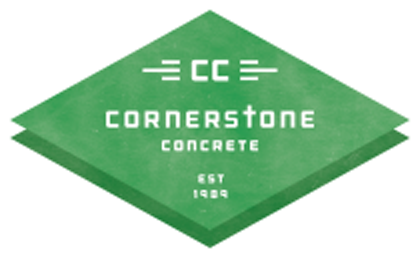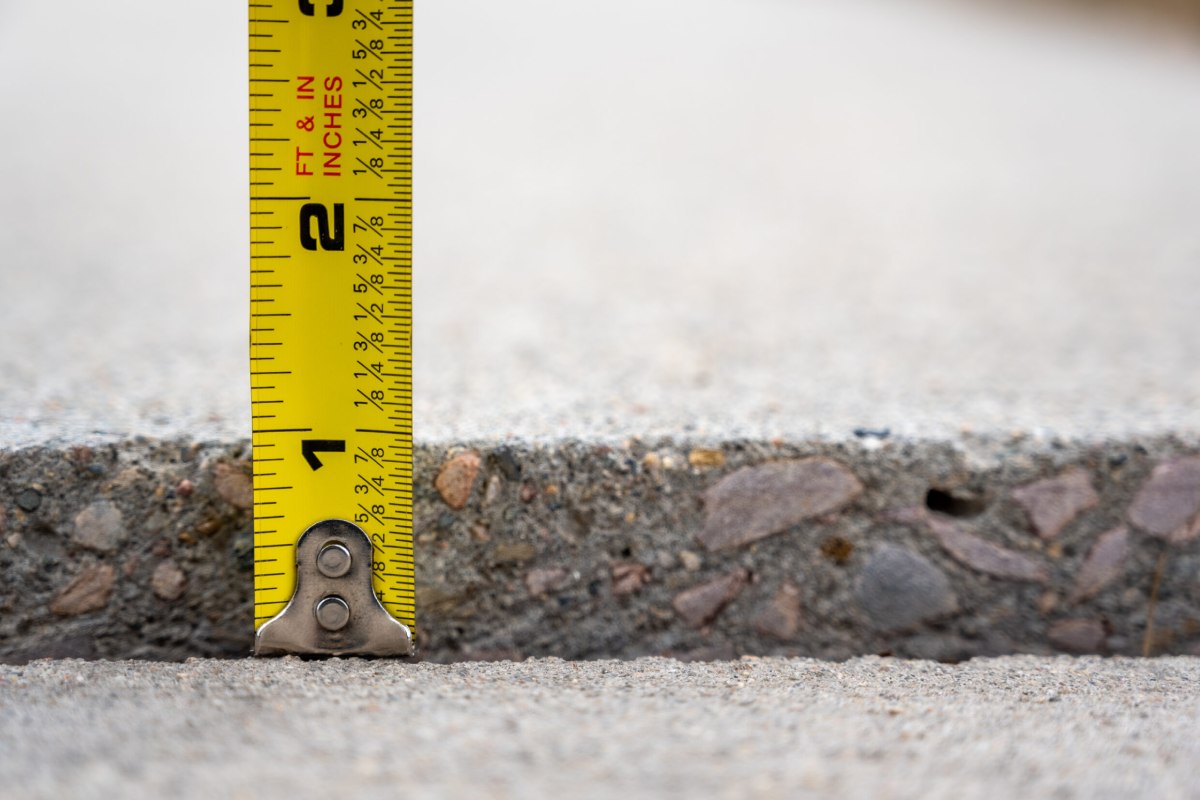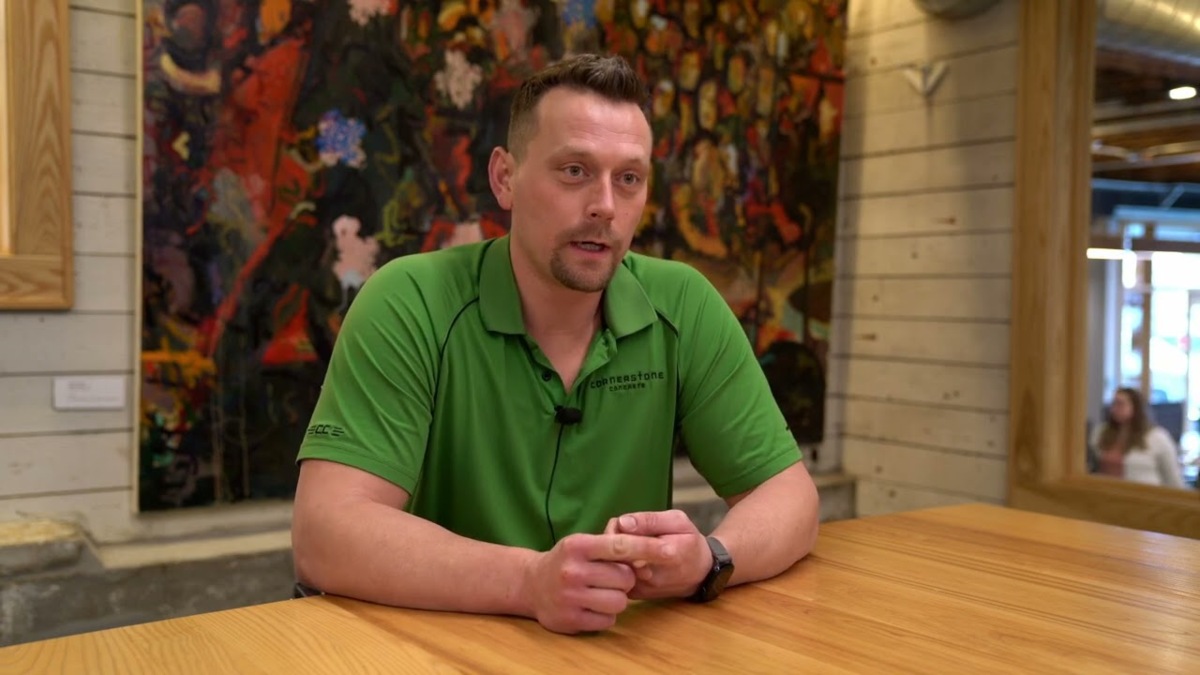Those midwest winters can be fierce to your concrete driveway, causing damage, erosion, slippery conditions, and more. Your concrete driveway can even rise during the winter months. Despite how scary this may seem, it is the normal ebb and flow of concrete responding to the seasons. But what is it and why does it happen?
Why Does My Concrete Driveway Rise in Winter?
Your concrete driveway might naturally rise in the winter time. The biggest reason concrete rises is due to moisture under your driveway before the ground freezes. When water sits in the soil under your concrete during the winter time, the ground will freeze and expand. With nowhere to go but up, this expanding frozen soil will push your driveway out of its way, causing it to rise.
What is Frost Heave?
This process is also known as frost heave or heaving. The official definition, by the Encyclopedia of Geology (Second Edition) 2021, is: the upward or outward movement of the ground surface (or objects on, or in, ground) caused by formation of ice in soil. This expansion will cause your concrete driveway to “heave” upward.
Is Frost Heave Bad?
Not always. In most cases the frozen soil will thaw, if you’re from Minnesota/Wisconsin: “unthaw”, and go back to its original position. However, if your concrete driveway rises too much, or the concrete is unable to return to its original position, it will be more prone to crack or break.
While this ice chunk moving your concrete driveway will more than likely thaw when the temperature rises, it can be a bit of a pest. It makes your beautiful concrete driveway look funny, and can become a tripping hazard. It is important to watch for a rise in your concrete driveway to prevent any falls. Keep in mind this is more than likely an issue that will fix itself when Spring comes.
In the cold climates of Minnesota and Wisconsin, where temperatures can drop drastically, understanding and preventing frost heave is essential for maintaining your driveway’s integrity.
How to Prevent Frost Heave in Concrete Slabs
Something that will ensure the safety of your concrete driveway with the Cornerstone Concrete installation crews is the Macro Synthetic Fibers used. Macro Synthetic Fibers replace rebar or steel grids to make your concrete driveway stronger and last longer with more flexibility. These fibers are added directly into the concrete mix to promote superior strength to steel grids, so it can help your driveway better handle frost heaving. To understand how Macro Synthetic Fibers work, you might want to read our detailed post on concrete driveway reinforcement.
Another prevention tactic is adding a layer of insulation between your concrete driveway and the ground to prevent rising. If you live in Minnesota or Wisconsin, you know how chilly it can get, so this layer of insulation can offer greater protection, extending the life of your driveway. This insulation layer can protect the soil underneath by preventing the frost heave from reaching it, meaning the soil is less prone to freezing, resulting in less rising. Adding a layer of insulation can be crucial. Learn more about this and other preventative techniques on our FAQ page.
Should I Do Something If I See Rising During the Winter?
Other than the above, there isn’t much more to do to prevent rising. If you are looking for a fix, there isn’t much to do during the winter time either (due to the adverse weather conditions). There also isn’t a great DIY way of fixing things.
Your best option is to wait until the winter ends to see if your concrete driveway will return to its rightful position. Most of the time this is the case! If your concrete driveway does not return and starts to crack, then it might be time to contact your friendly, concrete driveway experts to help replace it.
In the end, your concrete driveway will likely rise with the freezing midwest temperatures, but it is likely not the end! This is a natural process that will likely leave your concrete driveway the way you had it installed, especially if it was installed by the experts!
If you have any questions about your concrete driveway, looking for a new one to be installed, or wanting to replace your current one, give us a call at or contact us, here.








